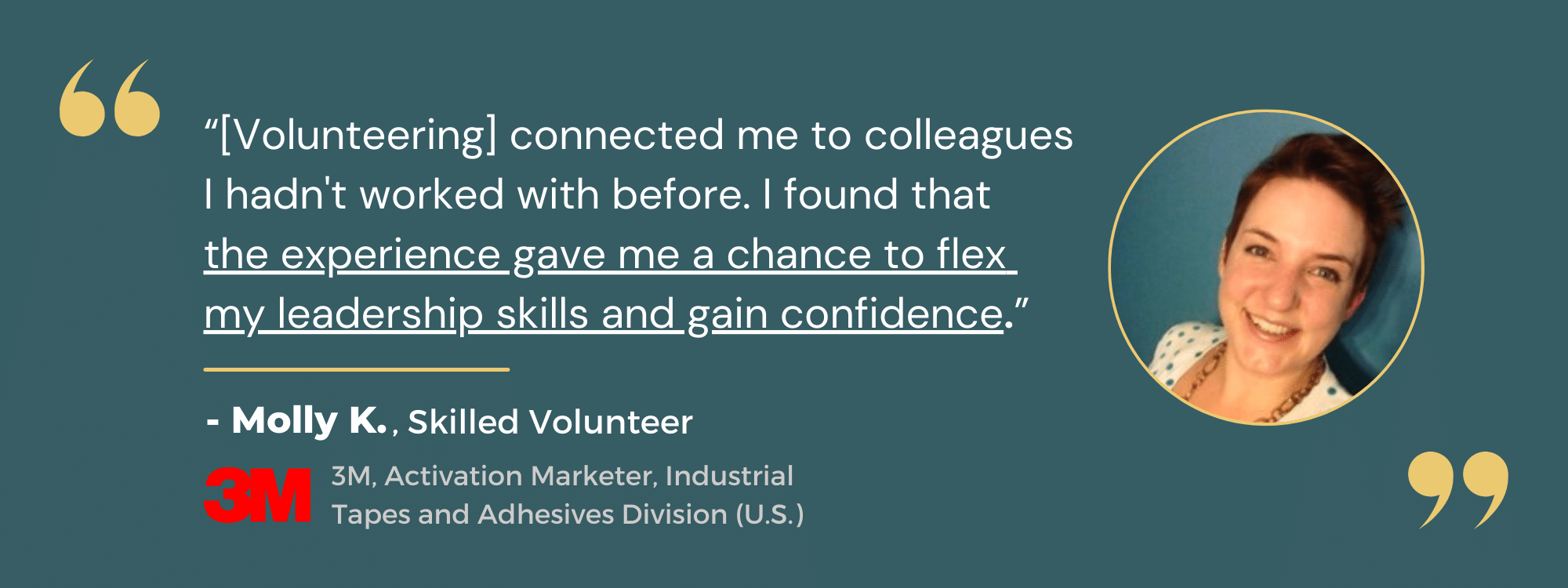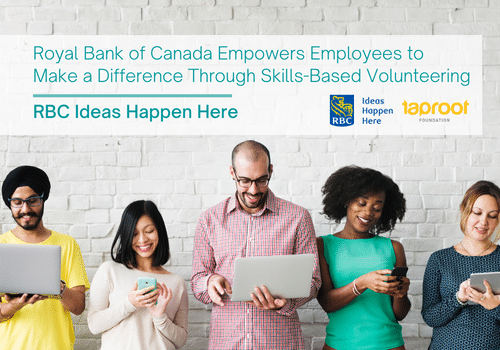Provide vital nonprofit support, improve employee engagement, and give back to local communities with a customized skills-based volunteering program through Taproot.
With 20 years of experience designing, implementing, and managing corporate pro bono programs, Taproot can help you deliver meaningful support for mission-driven organizations and provide employees with opportunities to share and develop their skills.
From strategy and design to implementation and pro bono program management, Taproot is with you every step of the way.
We have worked with over 100 Fortune 500 companies to help advance the field of corporate pro bono. See a list of our clients. Our programs help forward-thinking corporations go beyond traditional employee engagement to:
- Leverage employee skills and talents
- Enable leadership development and collaboration
- Support recruitment, retention, and innovation objectives
We look forward to talking with you. Please fill out the form below or email us at advisory@taprootfoundation.org.


